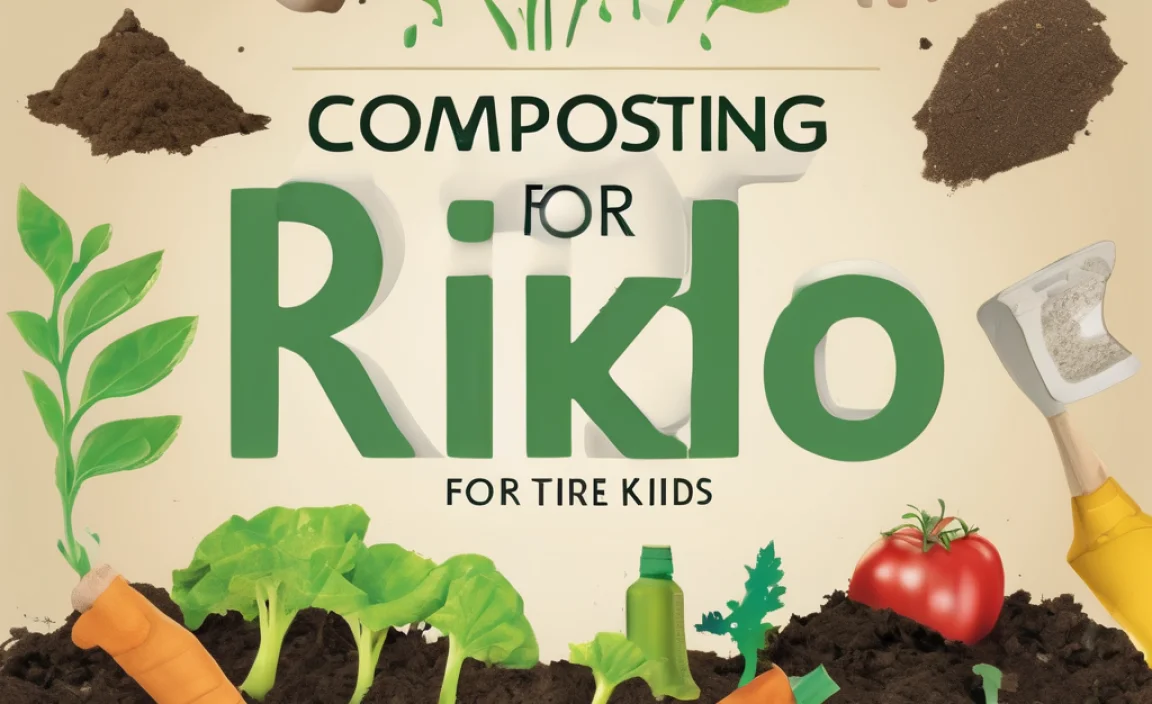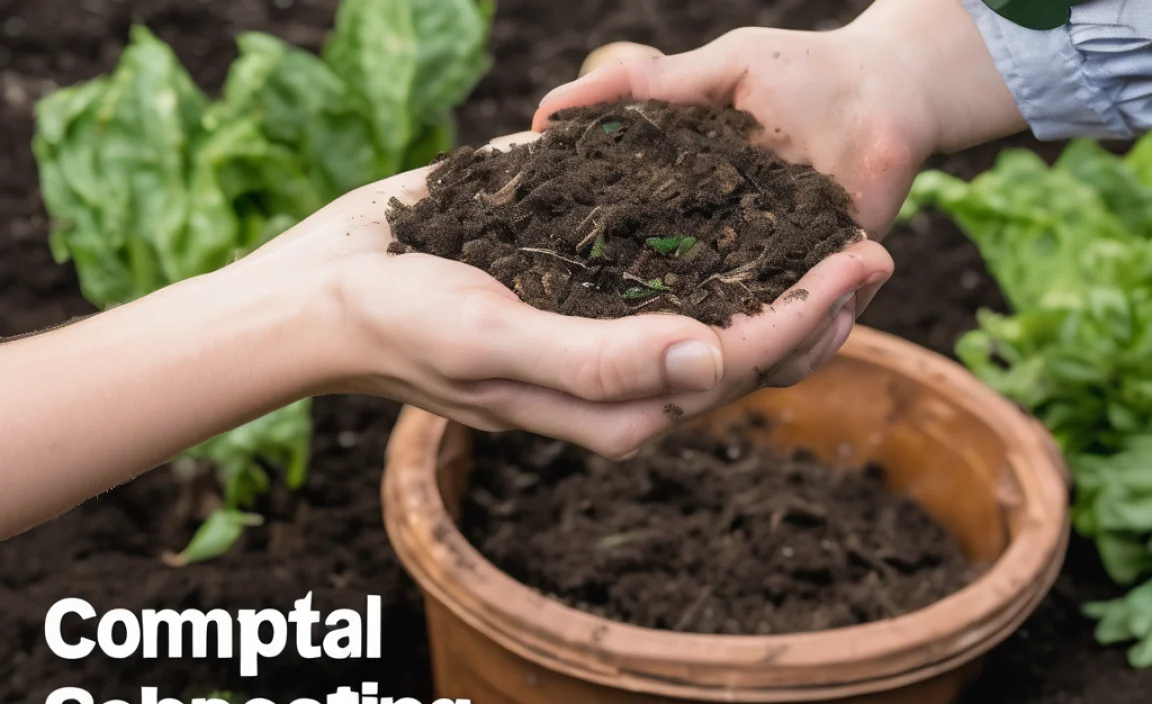Choosing the right water softener involves considering several factors. Start by determining your water hardness level and household water usage. Look for a softener with the appropriate grain capacity and flow rate. Consider single-tank vs. dual-tank systems, salt type, and regeneration features. Energy efficiency, warranty, and professional installation are also important factors for long-term satisfaction.
Hard water can be a real pain. It leaves soap scum in your shower, dries out your skin, and can even damage your appliances. Nobody wants that! Luckily, a water softener can solve these problems. But with so many options out there, how do you choose the right one? Don’t worry, I’m here to guide you through the process, step by step. We’ll cover everything from water hardness to tank sizes, so you can confidently pick the perfect water softener for your home. Let’s get started!
Understanding Your Water Needs
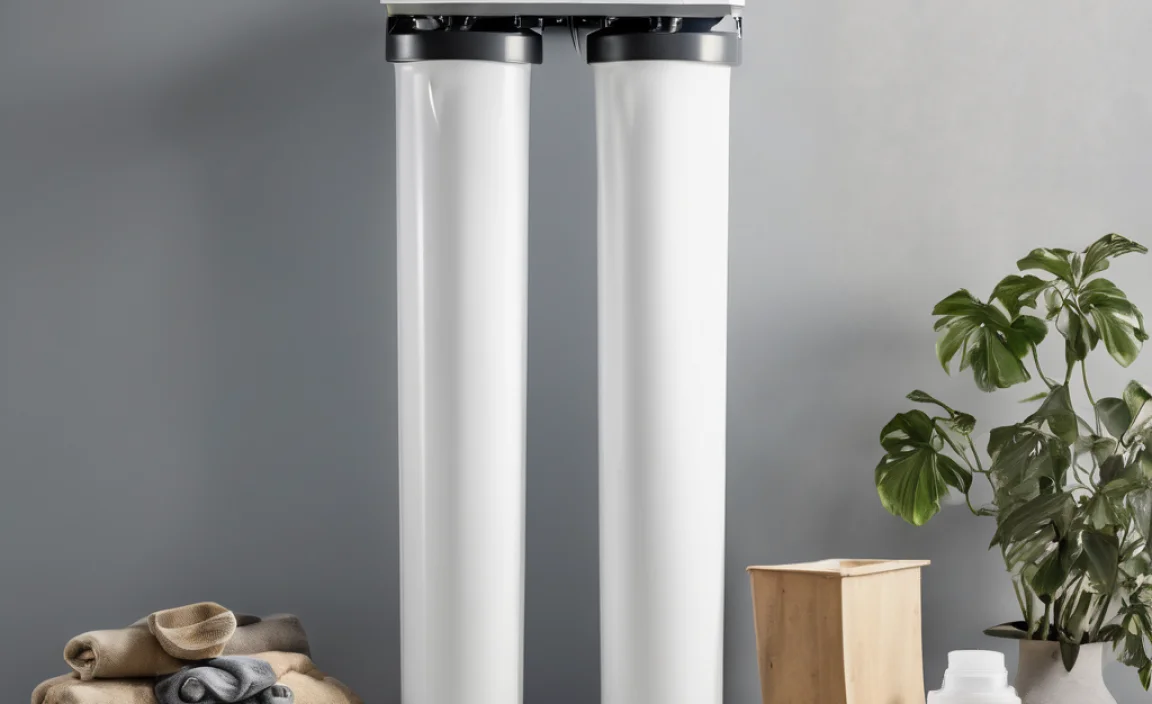
Before you start shopping, you need to understand your home’s specific water needs. This involves testing your water hardness and estimating your household water usage. It might sound complicated, but trust me, it’s easier than you think!
Test Your Water Hardness
Water hardness is measured in grains per gallon (GPG) or parts per million (PPM). The higher the number, the harder your water is. You can get a water hardness test kit at most hardware stores or online. Alternatively, your local water company might offer free testing. Once you have your results, you can determine the severity of your hard water:
- Slightly Hard: 1-3 GPG (17-51 PPM)
- Moderately Hard: 3-7 GPG (51-120 PPM)
- Hard: 7-11 GPG (120-180 PPM)
- Very Hard: 11+ GPG (180+ PPM)
Estimate Your Water Usage
To estimate your water usage, consider the number of people in your household and their daily water habits. On average, each person uses about 75 gallons of water per day. Multiply this number by the number of people in your household to get your daily water usage. Then, multiply that number by the number of days between regeneration cycles (usually 7) to get your total water usage between regenerations.
Example: A family of four uses 4 x 75 = 300 gallons per day. Over 7 days, they use 300 x 7 = 2100 gallons.
Sizing Your Water Softener
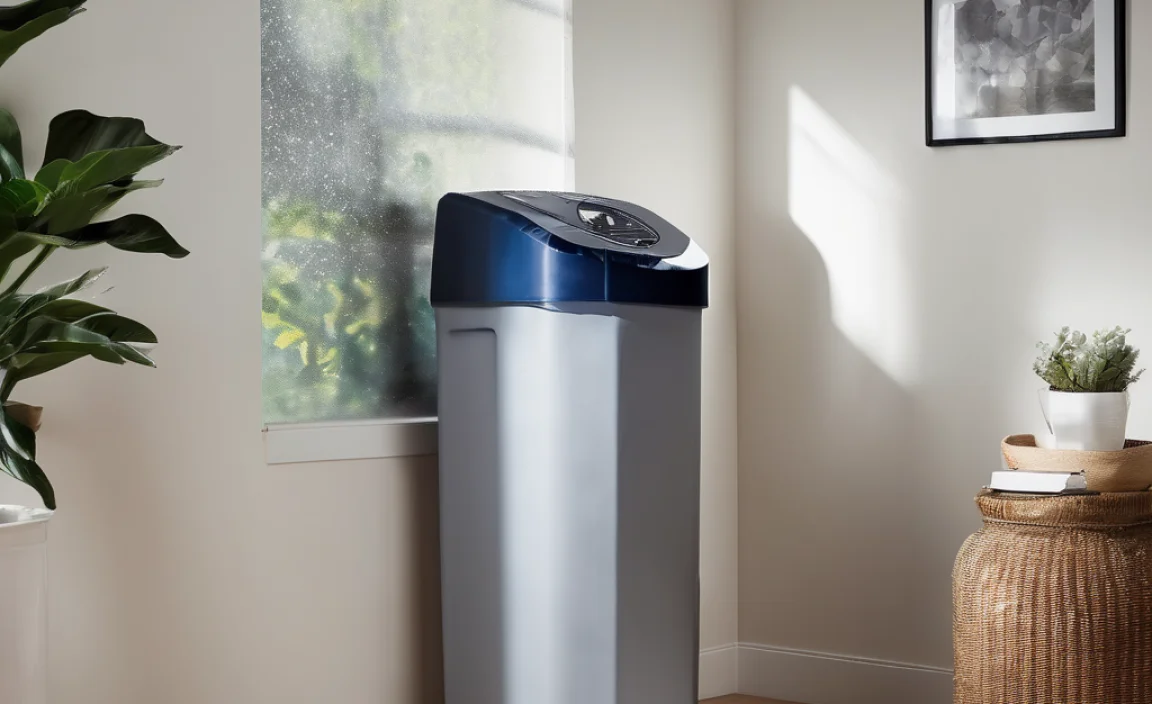
Now that you know your water hardness and usage, you can determine the right size water softener. This is crucial for ensuring optimal performance and efficiency. A softener that’s too small won’t be able to keep up with your water demand, while one that’s too large will waste water and salt.
Calculate Grain Capacity
The grain capacity of a water softener refers to the amount of hardness it can remove before needing to regenerate. To calculate the required grain capacity, multiply your water hardness (in GPG) by your water usage between regenerations.
Example: If your water hardness is 10 GPG and your water usage between regenerations is 2100 gallons, you need a softener with a grain capacity of 10 x 2100 = 21,000 grains.
Consider Flow Rate
The flow rate of a water softener refers to the amount of water it can soften per minute, measured in gallons per minute (GPM). Your water softener’s flow rate should be high enough to meet your household’s peak water demand. A typical household needs a flow rate of at least 8-12 GPM. If you have multiple bathrooms or appliances that use water simultaneously, you may need a higher flow rate.
Types of Water Softeners
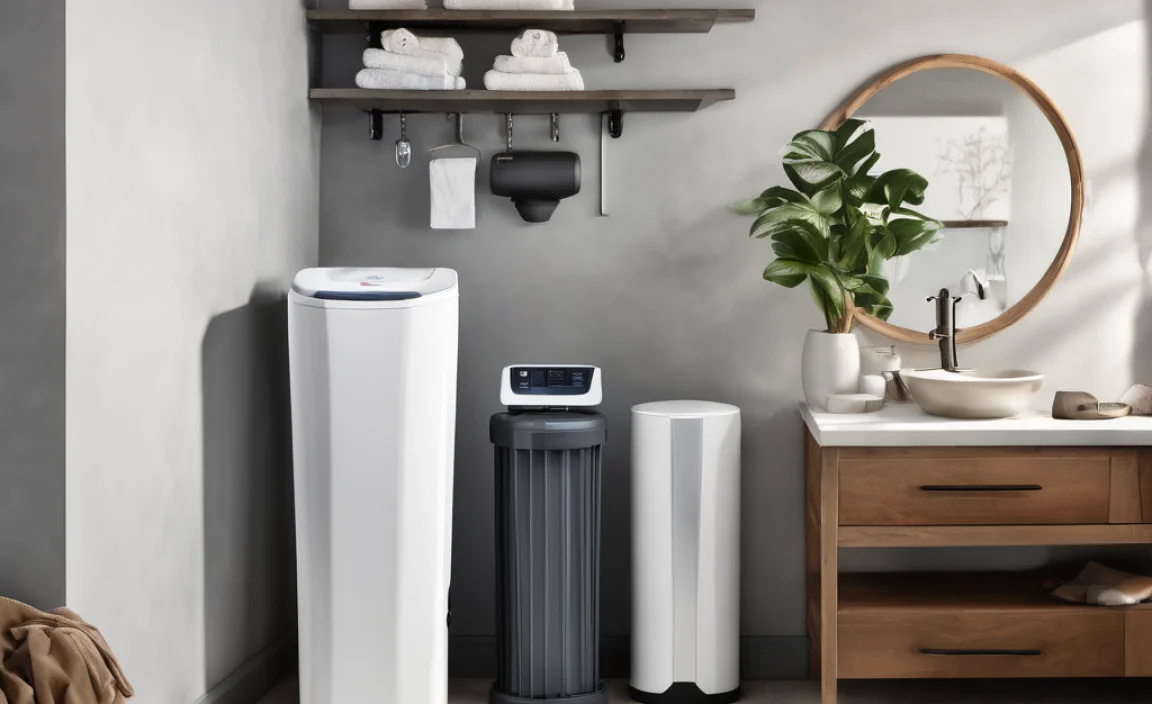
There are several types of water softeners available, each with its own pros and cons. Understanding the different types will help you choose the one that best fits your needs and budget.
Salt-Based Water Softeners
Salt-based water softeners are the most common type. They use a process called ion exchange to remove hardness minerals from your water. These softeners require regular salt additions to function properly. They are very effective at removing hardness. However, they do add a small amount of sodium to your water.
Single-Tank vs. Dual-Tank Systems
- Single-Tank Systems: These systems have one resin tank and regenerate overnight. They are less expensive but can’t provide soft water during regeneration.
- Dual-Tank Systems: These systems have two resin tanks. When one tank is regenerating, the other tank provides soft water, ensuring a continuous supply.
A dual-tank system is a good choice for larger households or those who need a constant supply of soft water.
Salt-Free Water Conditioners
Salt-free water conditioners, also known as descalers, don’t actually remove hardness minerals. Instead, they change the chemical structure of the minerals, preventing them from forming scale. These systems don’t require salt and don’t add sodium to your water. However, they are not as effective as salt-based softeners at removing hardness, especially in very hard water.
Magnetic Water Softeners
Magnetic water softeners are another type of salt-free system. They use magnets to alter the structure of hardness minerals. Like salt-free conditioners, they don’t remove minerals, but claim to prevent scale buildup. The effectiveness of magnetic water softeners is debated, and they may not be suitable for all situations.
Salt Options for Water Softeners
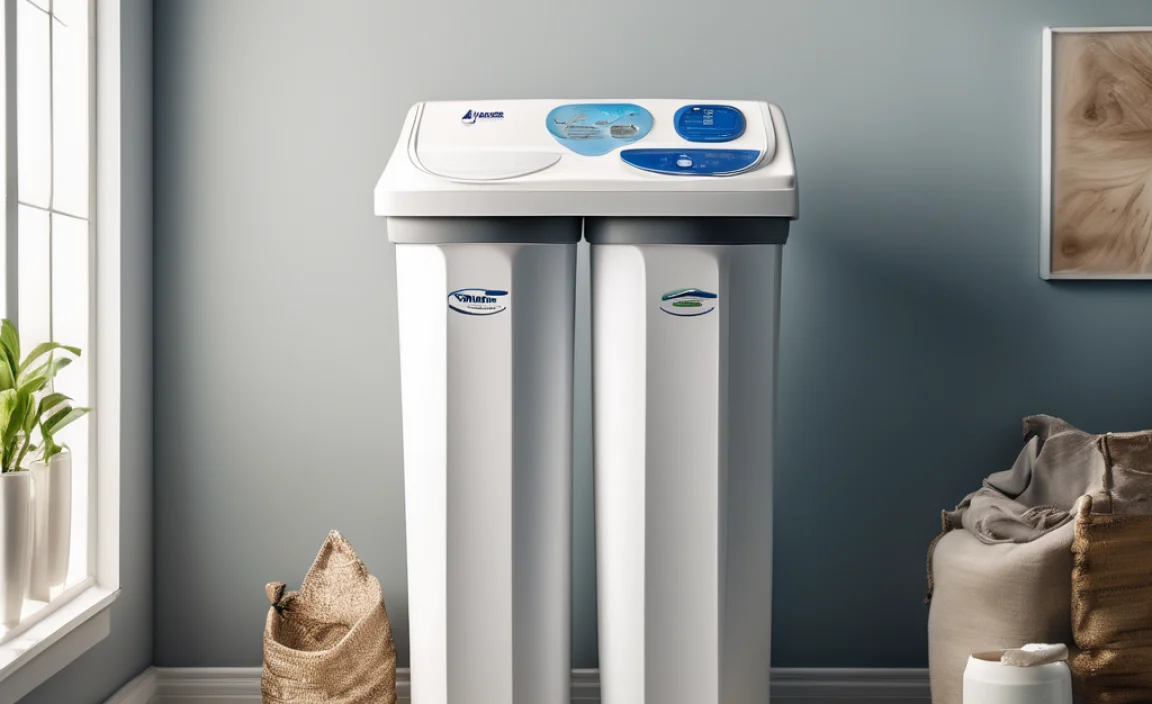
If you choose a salt-based water softener, you’ll need to choose the right type of salt. There are three main types of salt used in water softeners.
Rock Salt
Rock salt is the least expensive option. It contains impurities that can build up in your softener tank over time, requiring more frequent cleaning. It’s also the least pure form of salt, so it may not be as effective as other options.
Solar Salt
Solar salt is made by evaporating seawater. It’s purer than rock salt and less likely to cause buildup in your softener tank. It’s a good middle-of-the-road option in terms of price and purity.
Evaporated Salt
Evaporated salt is the purest form of salt. It’s made by dissolving rock salt in water and then evaporating the water. This process removes impurities, resulting in a very clean salt. It’s the most expensive option but also the most effective and requires the least maintenance.
| Salt Type | Purity | Cost | Pros | Cons |
|---|---|---|---|---|
| Rock Salt | Low | Low | Least expensive | Contains impurities, requires more maintenance |
| Solar Salt | Medium | Medium | Good balance of cost and purity | May still contain some impurities |
| Evaporated Salt | High | High | Purest option, requires least maintenance | Most expensive |
Regeneration Features
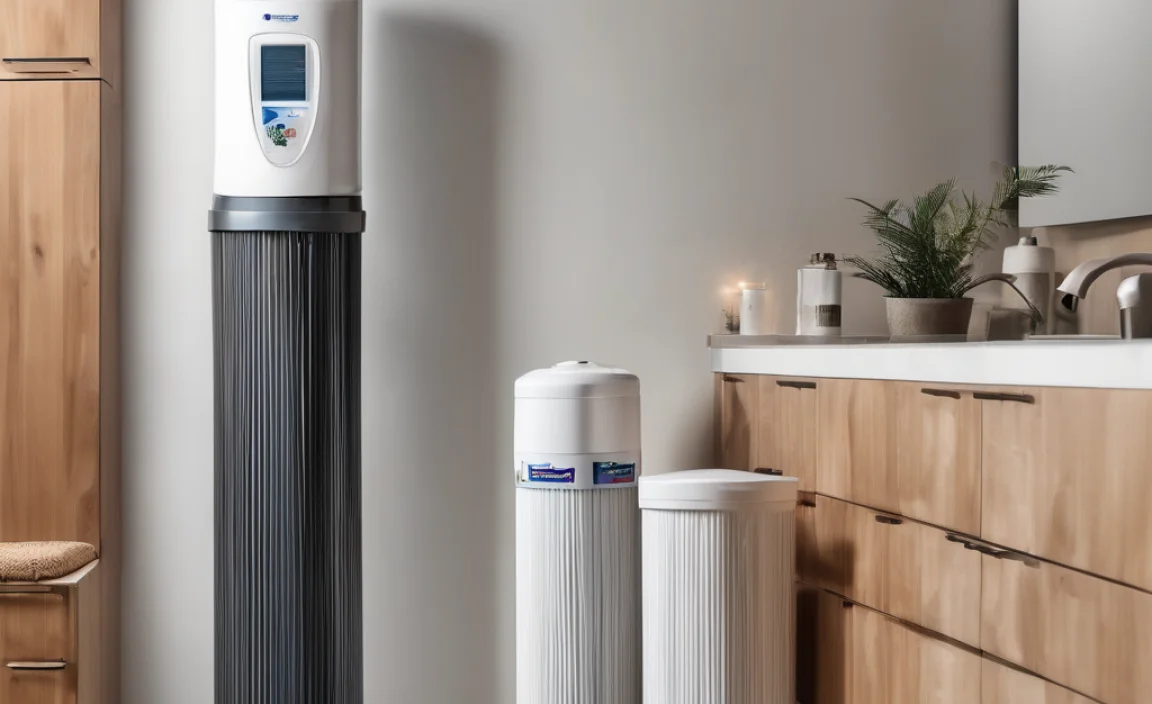
Regeneration is the process by which a water softener cleans its resin beads. This process involves flushing the beads with a salt brine solution to remove accumulated hardness minerals. Different water softeners offer different regeneration features.
Timed Regeneration
Timed regeneration softeners regenerate on a set schedule, regardless of water usage. This type of regeneration is less efficient because it may regenerate even when it’s not necessary. It can waste water and salt.
Metered Regeneration
Metered regeneration softeners regenerate based on water usage. They monitor how much water you use and regenerate only when the resin beads are saturated. This is a more efficient option because it conserves water and salt.
Smart Regeneration
Smart regeneration softeners use advanced algorithms to optimize regeneration. They take into account your water usage patterns and regenerate only when necessary. Some models even learn your habits over time to further improve efficiency. This is the most efficient option but also the most expensive.
Additional Features to Consider
In addition to the factors above, there are several other features to consider when choosing a water softener.
Energy Efficiency
Look for a water softener with a high energy efficiency rating. This will save you money on your electricity bill. Some models have energy-saving features like automatic shut-off valves and low-power consumption modes.
Warranty
A good warranty is essential for protecting your investment. Look for a water softener with a comprehensive warranty that covers parts and labor. A longer warranty indicates that the manufacturer has confidence in their product.
Certifications
Certifications from organizations like the Water Quality Association (WQA) and NSF International indicate that a water softener has been tested and meets certain standards for performance and safety. Look for these certifications when choosing a water softener.
You can check for certifications and learn more at the NSF website.
Installation
Water softeners can be installed professionally or DIY. If you’re comfortable with plumbing, you may be able to install a water softener yourself. However, professional installation is often recommended to ensure proper setup and avoid potential problems. Professional installation typically costs between $200 and $500.
Top Brands to Consider
Several reputable brands offer high-quality water softeners. Here are a few to consider:
- Whirlpool: Known for reliable and affordable water softeners.
- GE: Offers a wide range of water softeners with various features.
- EcoPure: Specializes in eco-friendly and efficient water softeners.
- Fleck: Known for durable and long-lasting water softener control valves.
- Aquasana: Offers salt-free water conditioners and whole-house filtration systems.
Pros and Cons of Owning a Water Softener
Before making a decision, it’s important to weigh the pros and cons of owning a water softener.
Pros
- Softer Skin and Hair: Soft water is gentler on your skin and hair, leaving them feeling softer and smoother.
- Less Soap Scum: Soft water reduces soap scum buildup in your shower, tub, and sinks.
- Extended Appliance Life: Soft water prevents scale buildup in your appliances, extending their lifespan.
- Reduced Soap and Detergent Usage: Soft water allows you to use less soap and detergent for cleaning.
- Brighter, Cleaner Laundry: Soft water helps your laundry come out brighter and cleaner.
Cons
- Initial Cost: Water softeners can be expensive to purchase and install.
- Maintenance: Salt-based water softeners require regular salt additions and occasional cleaning.
- Sodium Content: Salt-based water softeners add a small amount of sodium to your water.
- Wastewater: Water softeners generate wastewater during regeneration.
- Space Requirements: Water softeners require space for the tank and control valve.
Cost Considerations
The cost of a water softener can vary depending on the type, size, and features. Here’s a general breakdown of the costs involved:
- Water Softener Unit: $500 – $2000+
- Installation: $200 – $500 (if professionally installed)
- Salt: $10 – $20 per bag (depending on the type of salt)
- Electricity: $5 – $10 per month (depending on the model)
DIY vs. Professional Installation
Deciding whether to install a water softener yourself or hire a professional depends on your plumbing skills and comfort level.
DIY Installation
Pros:
- Cost savings on installation fees.
- Flexibility to install at your convenience.
Cons:
- Requires plumbing knowledge and skills.
- Potential for errors that could lead to leaks or damage.
- May void the warranty if not installed correctly.
Professional Installation
Pros:
- Ensures proper installation and functionality.
- Reduces the risk of leaks or damage.
- May be required to maintain the warranty.
Cons:
- Higher cost due to installation fees.
- Requires scheduling an appointment.
Water Softener Maintenance Tips
Proper maintenance is essential for keeping your water softener running smoothly and efficiently. Here are a few tips:
- Add Salt Regularly: Check the salt level in your brine tank monthly and add salt as needed.
- Clean the Brine Tank: Clean the brine tank every few months to remove salt buildup and debris.
- Inspect for Leaks: Regularly inspect your water softener for leaks and repair them promptly.
- Monitor Water Hardness: Periodically test your water hardness to ensure your softener is working properly.
- Replace Parts as Needed: Replace worn or damaged parts, such as the resin beads or control valve, as needed.
Frequently Asked Questions (FAQs)
What size water softener do I need?
The size of your water softener depends on your water hardness and water usage. Calculate your required grain capacity by multiplying your water hardness (in GPG) by your water usage between regenerations. Then, choose a softener with a grain capacity that meets or exceeds your needs.
How often should I add salt to my water softener?
You should check the salt level in your brine tank monthly and add salt as needed. The tank should be at least one-third full of salt at all times.
How long do water softeners last?
With proper maintenance, a water softener can last 10-15 years or longer. The resin beads typically need to be replaced every 5-10 years.
Are salt-free water conditioners as effective as salt-based water softeners?
Salt-free water conditioners are not as effective as salt-based water softeners at removing hardness minerals. They may be suitable for slightly hard water but are not recommended for very hard water.
Can I install a water softener myself?
If you have plumbing knowledge and skills, you may be able to install a water softener yourself. However, professional installation is often recommended to ensure proper setup and avoid potential problems.
Do water softeners waste water?
Water softeners generate wastewater during regeneration. Metered and smart regeneration softeners are more efficient because they regenerate only when necessary, conserving water.
Is softened water safe to drink?
Yes, softened water is generally safe to drink. However, salt-based water softeners add a small amount of sodium to your water. If you’re on a low-sodium diet, you may want to consider a salt-free water conditioner or install a separate drinking water filter.
Conclusion
Choosing the right water softener can seem daunting, but by understanding your water needs, considering the different types of softeners, and weighing the pros and cons, you can make an informed decision. Remember to test your water hardness, estimate your water usage, and choose a softener with the appropriate grain capacity and flow rate. Consider additional features like energy efficiency and warranty, and don’t hesitate to seek professional installation if you’re not comfortable with plumbing. With the right water softener, you can enjoy softer skin and hair, less soap scum, and extended appliance life for years to come. Happy softening!

